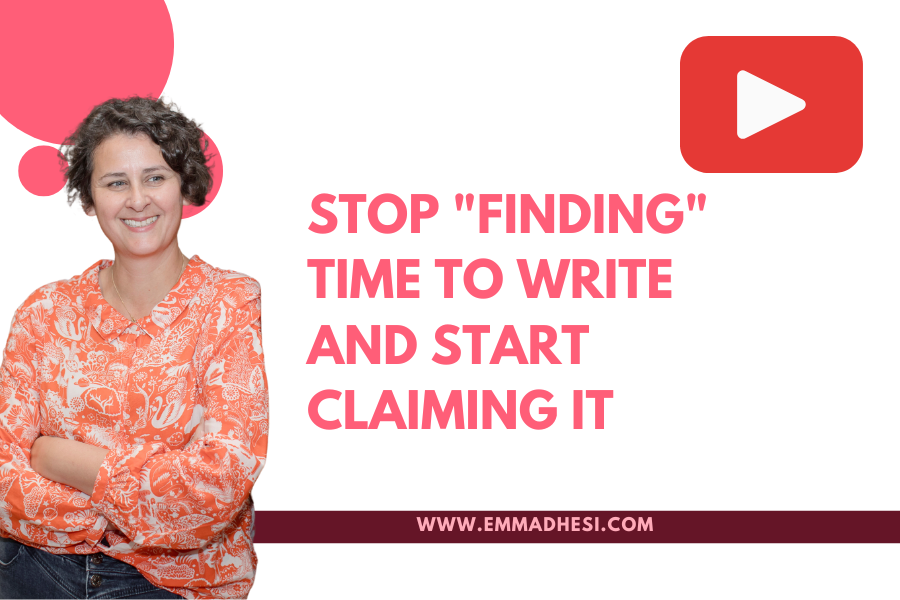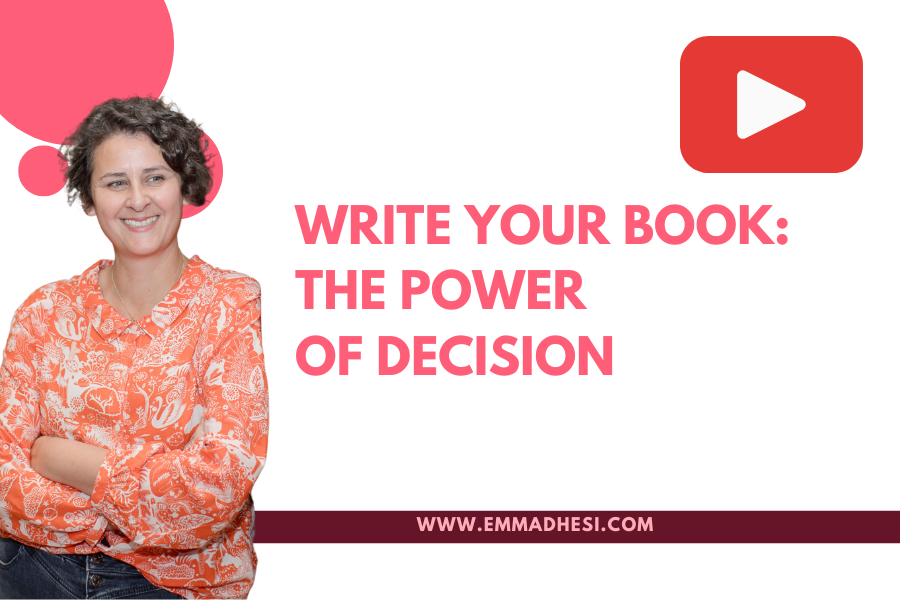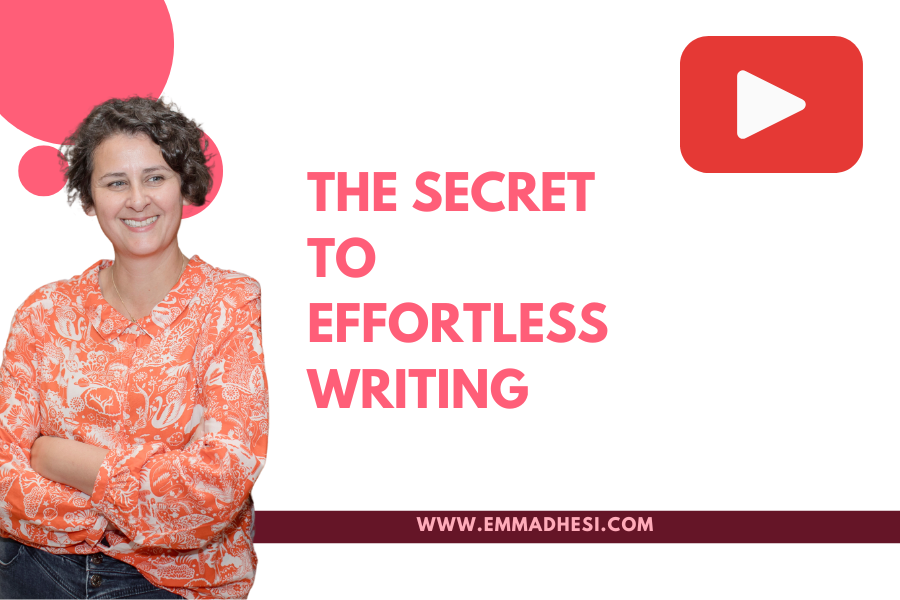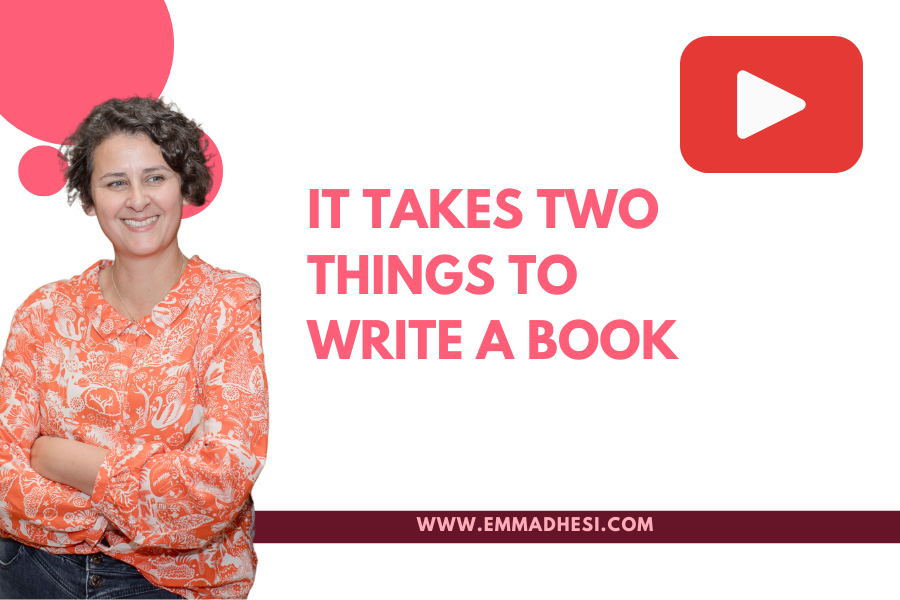
It Takes Two Things To Write a Book
It takes two things to write a book. Do you want to know what they are?
Watch my video below, or read the post, to find out!
Hello my lovely writers!
It takes two things to write a book. It takes self-belief that you can do it and it takes habit. Those are the two things you need to write a book.
I say that because all of you have wonderful ideas, ideas that just keep coming. Coming up with ideas is not a problem for you. I know, too, you do a lot of work on the craft of writing. You read a lot, you listen a lot, and you take part in so many workshops and online programs, you’ve started to think you’re addicted to writing courses, so I know you are doing a lot of work on the craft of writing.
Routine comes with self-belief
But when it comes down to it, the two things that are really holding you back are self-belief that you can do this and building a routine. And routine comes with self-belief.
We think it’s the other way around, that if we build a routine, if we keep doing all these classes, then the self-belief will come along afterwards. But it’s the other way around because you need to believe you are capable of doing this.
It doesn’t have to be perfect and it doesn’t have to be tomorrow but you’ve got to believe that at some stage you are capable of finishing your book or that you are at least capable of writing a first draft.
When you have a level of self-belief that this is possible for you, you are much more likely to turn up at your desk regularly and build that routine. It’s all very well turning up to an online class or a weekend workshop because someone else has set the deadline and said, ‘This is when it’s going to start.’ But when it comes to setting that time for ourselves, that deadline for ourselves, to show up for ourselves, there’s a level of self-belief that needs to come if you’re going to believe that you can sit down and do it.
The two things it takes to write a book
They are the two things it takes to write a book: self-belief and routine. Do you have those? Are you ready with those? If not, if this is something that is holding you back, then I encourage you to check out my fabulous program, Unlock Your Creative Block. It will give you the self-belief you need to set the routine to write your book.
Emma xx
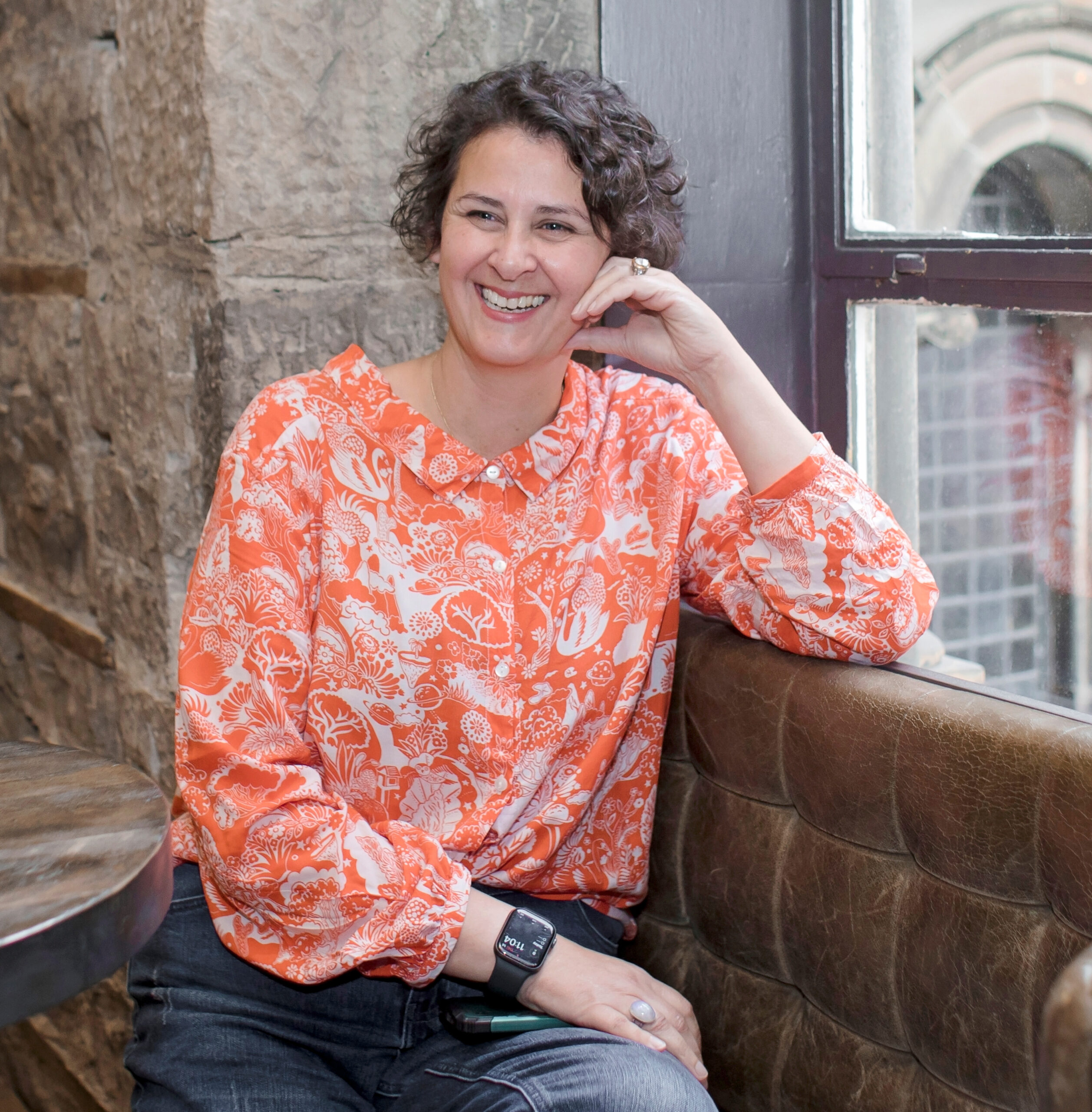
Emma Dhesi
Emma Dhesi is a Certified Author Accelerator Book Coach and bestselling author who helps writers let go of perfectionism, self-doubt and writer's block through her signature programme, Unlock Your Creative Block.
She is the host of the YouTube Channel, Emma Dhesi, where she interviews debut and experienced authors alike.
Through her 1:1 coaching programme, Emma helps new authors start and finish their first novel.
Emma provides personal written feedback on their pages and guides them through the emotional rollercoaster that is writing a novel!

